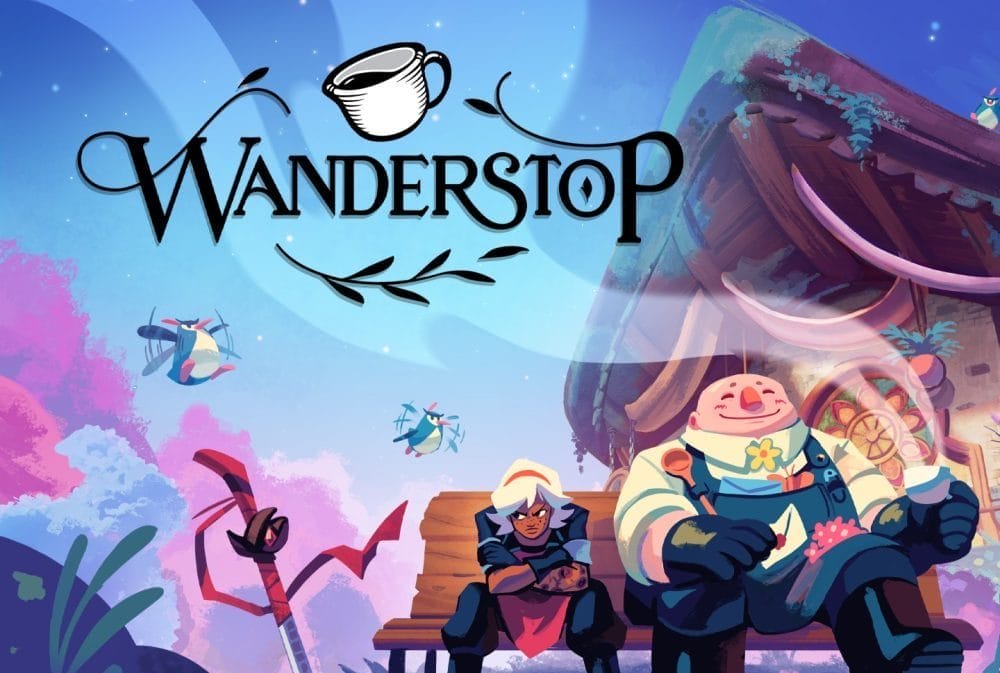Awareness of mental well-being, burnout, and the need for work/life balance is greater than ever. Yet, so many of us still find ourselves caught in the cycle of deadlines, self-imposed expectations, and the pressure to always be achieving. Even when we do slow down, it’s often accompanied by guilt-an uneasy feeling that we should be doing more, that rest is something to be earned rather than necessary in its own right. Wanderstop, the new narrative driven cosy game developed by Ivy Road, taps into that struggle through the story of Alta, a warrior who finds herself in an unfamiliar place: a quiet tea shop in the middle of a magical forest.
“My name is Alta, and I am a fighter.” – Alta
Alta was once an undefeated champion in combat, the best there was, until she suffered her first shocking defeat. Sadly this was no anomaly, and after dealing with several more unsuccessful bouts, the young warrior went in search of one of the greatest fighters in history to receive training. While running through a magical forest, Alta begins to tire and soon is unable to even lift the sword she once wielded with such ease and prowess. Not long after, she succumbs to her growing fatigue and passes out on the forest floor. She wakes to find herself sitting on a bench next to a large bald man called Boro, who found her in the forest and brought her to his little tea shop, the eponymous Wanderstop.
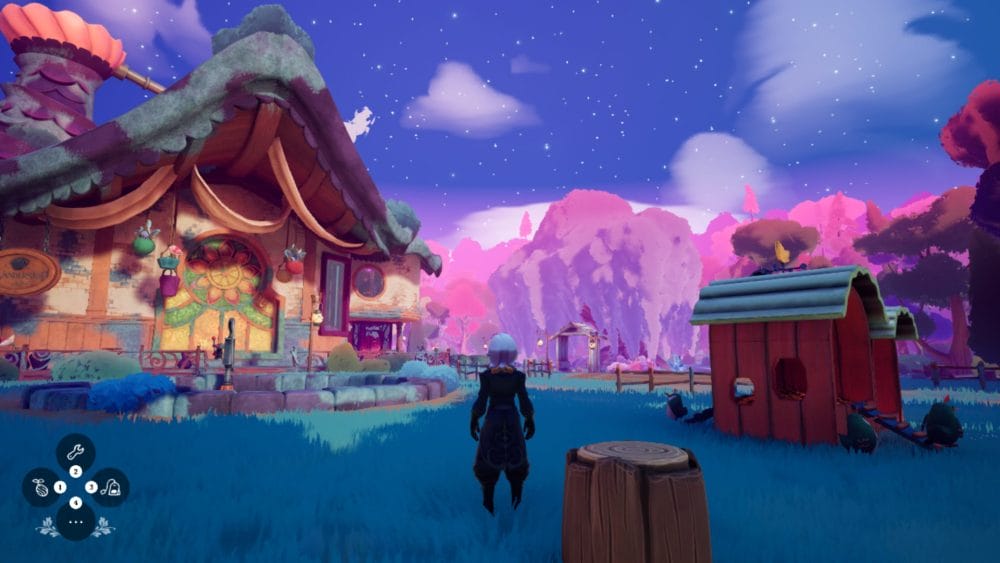
Boro is a kind and mild-mannered soul, whose caring nature and subtle wisdom is present in everything he says. He suggests to Alta that she stay and help him at the tea shop as a way to regain her strength, even though all the young woman wants to do is continue on her journey back to who she was. The game lets you leave anytime you want, but every attempt ends the same way, with Boro carrying Alta’s unconscious body back to the tea shop.
“Will it fix you? No, but it may let you heal just a little bit.” – Boro
Begrudgingly, Alta agrees to help Boro, who takes her through the steps required to make a lovely cup of tea. This is the focus of Wanderstop‘s gameplay; the harvesting of ingredients, brewing of tea, and then serving it to customers who come to visit. Tea leaves are harvested all around the serene glade where the Wanderstop is situated, while certain types of fruit can be collected from plants that Alta can grow just about anywhere. Different plants can be grown by planting different seeds in certain formations to create hybrid plants, all of which produce unique fruits. Each of these in turn give the tea different properties, from the flavour to the emotional state it puts the drinker in. Mushrooms can also be picked and replanted round large hybrids to alter the fruit they yield.
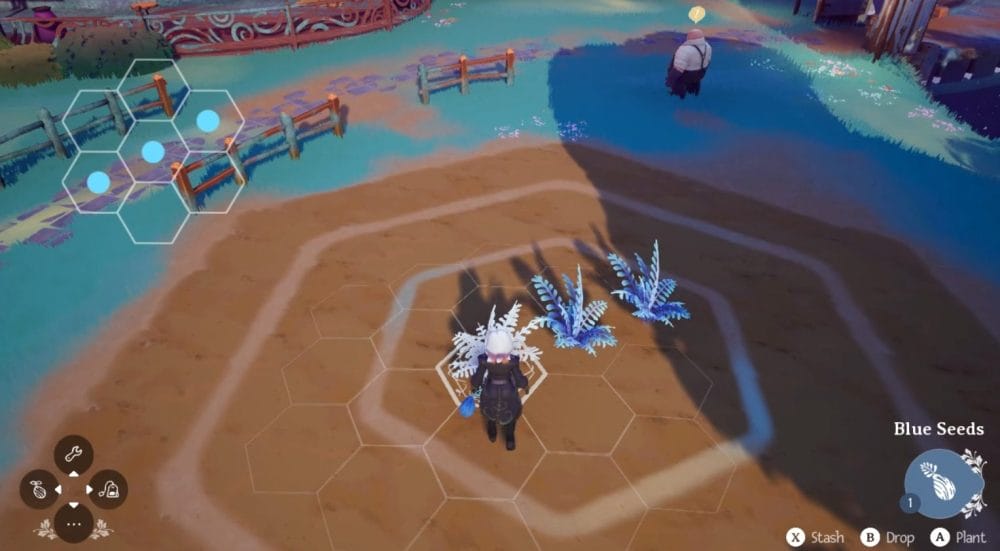
Along with making the tea, you can tidy up heaps of leaves and cut down thorns to keep the area tidy, sometimes earning yourself a trinket to decorate the tea shop’s many shelves. You can also get trinkets from posting lost parcels that you find around the glade, or being carried by the fuzzy little Pluffins that potter around. There is a fair deal to learn about all these processes, but tutorials are available in the field guide, a book that Boro gives Alta which also tracks the guests’ tea requests, as well as plant combinations and descriptions. There is also the Book of Answers which will tell players what type of tea the guests are requesting, but I chose not to use this and enjoy the process of experimentation.
One complaint I have is with how you access different items Alta is carrying, from equipping different tools to planting seeds. Items are split into categories and then each category is assigned a button which you press to select what you want. I found this system quite awkward and would have been happy with a simple radial menu that gave me access to everything I was carrying, or I could assign items to. I wouldn’t go so far as to say it ruins the flow of the game, but I constantly pressed the wrong button to access what I wanted throughout my playtime.
“Don’t be useful. Dumpsters are useful, and nobody wants to be around a dumpster.” – Nana
Brewing the tea is an event unto itself. On entering the Wanderstop tea shop Alta finds a giant contraption made of several interconnected glass bowls and pipes, like a colossal alchemy kit. There is a process to making the tea, and Alta must use a ladder to reach certain parts of the apparatus. I absolutely loved this element of the game, not because it was challenging or different everytime I did it, but because it was enjoyable to watch the process. Boiling the water, watching it change colour depending on the ingredients I added, to finally pouring it into a dainty cup was such a pleasurable experience. My only issue with it is that the rope you pull to pour the tea can be a bit pernickety, only giving me the option to interact with it if Alta was in the exact right spot.
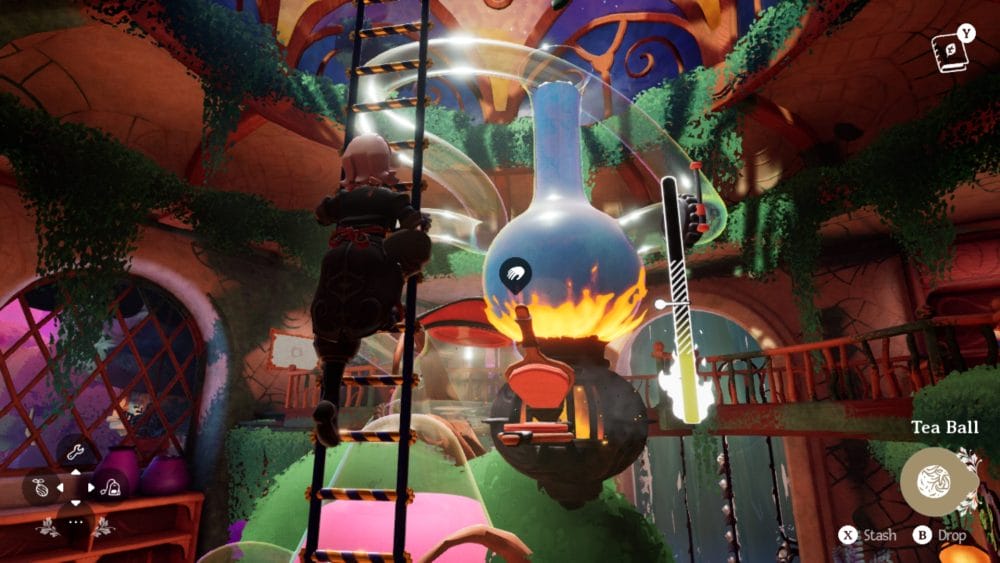
There are no external pressures to contend with, no timers to speak of; the game wants you to take things at your own pace, much like what Boro is suggesting to Alta. There are even times when there is nothing for you to do, and its these moments of downtime that really stand out. There is a synchronicity between what the game is asking of both the character and the player, and I think it is executed very well.
“Do I need to have a reason? Can’t a really cool dad just be a knight for no reason?” – Gerald
This is not just due to the relaxing nature of the gameplay, but the excellent writing of every character you meet. There are just as many different personalities in Wanderstop as there are flavours of tea, with each character fully fleshed out, complete with unique character designs and silhouettes. I looked forward to chatting with each NPC, and this is doubly true when a new visitor entered the glade. There is a levity to a lot of the conversations, with many getting a good chuckle out of me. My personal favorite was Gerald, a father who fancies himself a knight and is the epitome of “golden retriever energy”. While you don’t have to go through long conversations with each character, you miss out on some incredible moments if you don’t. My example of this was asking to keep seeing photos Gerald had of him and his son, the silliness of the whole thing magnifying with each ridiculous snapshot. While these charactes are not voice acted (Alta is during some beautifully illustrated cutscenes), the dialogue is written in a natural, chatty sort of way, which comes as no surprise when you remember the writer for Wanderstop is Davey Wreden, on of the creators of The Stanley Parable.
I will say now that the personal journey that Alta takes through Wanderstop is not a smooth one, and the narrative does not shy away from the reality of her situation. I won’t say anything regarding these elements, as I believe their impact is dependant upon a player’s experience of them, and I would not want to rob anyone of that. While the gameplay may keep its easy-going nature, the game’s story is no “walk in the park”.
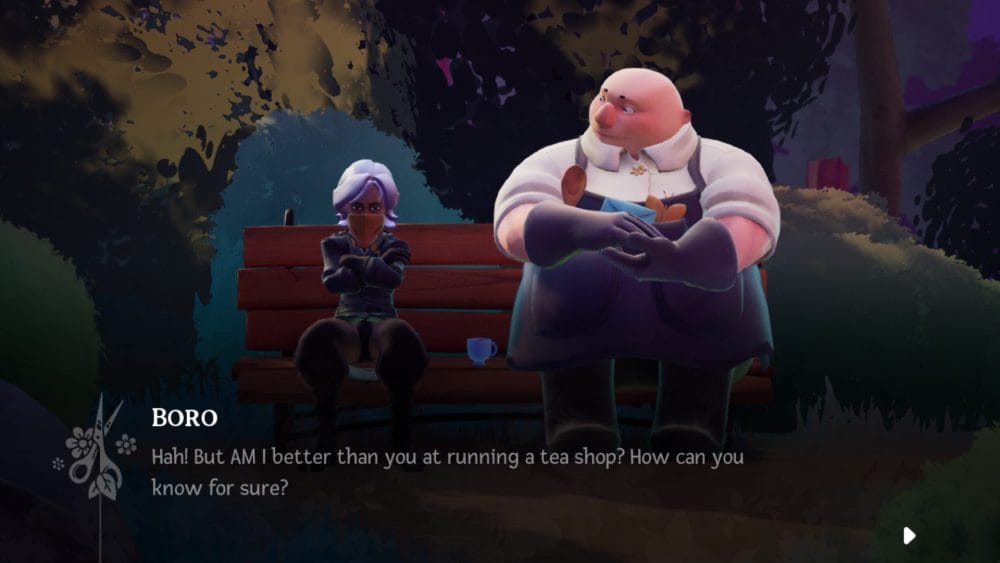
Alta can also make a cup of tea for herself, picking a spot to sit to just enjoy her hot beverage and the calm. These lead to moments of self-reflection, which are influenced by what tea she is drinking. These moments do a great job of giving the player more insight into Alta, helping to flesh out her character. I found myself growing to understand Alta as a person, finding her more relatable as the game went on. This in turn influenced how I chose my responses to NPCs, often choosing to lean into the ‘I just work here’ vibe.
Wanderstop’s stylized visuals bring the glade to life with bright, vibrant colors that emphasize its magical nature. The art direction creates an inviting, dreamlike atmosphere, somewhere to relax and just enjoy the scenery. The game’s animations are also wonderfully executed and nuanced, from tea being poured into a cup, to Alta’s eye twitching when she gets angry. These aren’t just placeholder animations, these are purposeful, accurate, relatable.
At certain points in the game the seasons change, but this doesn’t just alter the landscape-it breathes new life into it, shifting the colour palette, introducing new plants, and altering the lighting in ways that reflect the passage of time. These visual transitions reinforce the game’s themes, making the glade feel alive and ever-changing. These changes come at important beats in the story, and often colour the world in a way that reflects that.
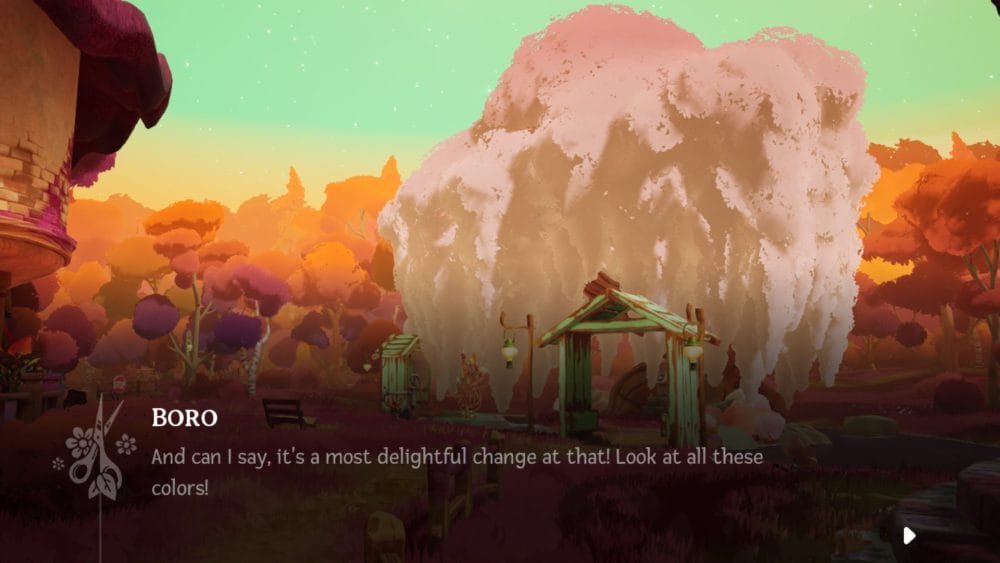
A key aspect of Wanderstop‘s storytelling is its embrace of impermanence. As the seasons change, so too does the glade-your carefully cultivated plants and decorations disappear, making way for something new. This design choice encourages players to embrace the fleeting nature of things rather than hold onto the past. While this reinforces the game’s core themes, it may be bittersweet for those who grow attached to their personal touch on the Wanderstop’s surroundings.
The game’s soundtrack is subtle, perfectly complementing its relaxing nature. Music drifts in and out, allowing players to fully absorb the tranquil soundscape of the forest-the rustling leaves, the gentle flow of water, the distant calls of unseen creatures. Each NPC also has a distinct musical theme, subtly reinforcing their personalities and the emotions they bring to the Wanderstop.
“On a journey such as mine, one’s strength must be minded carefully at all times. Rest is the utmost priority.” – Ren
At the beginning of this review I talked bout how Wanderstop tackles issues like burnout and self care, which it does fantastically. The game isn’t heavy handed with its message, but clear and consistent, and witnessing Alta learn to look after herself hits hard. It also works to highlight the state of the video games industry, and it’s history of crunch culture and lack of job security. The people who make the video games we enjoy work tirelessly to bring their creations to life, all while the industry suffers from near constant layoffs and studio closures. This level of uncertainty does nothing positive for the video games industry, and the people dealing with the consequences are not those responsible.
Burnout may be the focal theme of Wanderstop, but something I have not seen mentioned elsewhere, and maybe this is a more personal take, is how the game addresses the difficulty of letting go of something you thought was part of, or your whole identity. In my own life I have had to make these difficult choices, to let go of how I saw myself and defined myself. I struggled with this for years, and watching Alta’s own struggles to come to terms with her situation hit home in a big way. Alta doesn’t want to be here, this isn’t what she wanted. To her, this isn’t rest-it’s giving up. She should be out striving to become the champion fighter she once was, now she can’t even lift her own sword It is hard to accept that who you were isn’t necessarily who you have to be forever. The theme of letting go-especially of a past identity or the way you define yourself-is a powerful one, and it seems like Wanderstop explores that just as much as burnout and self-care.
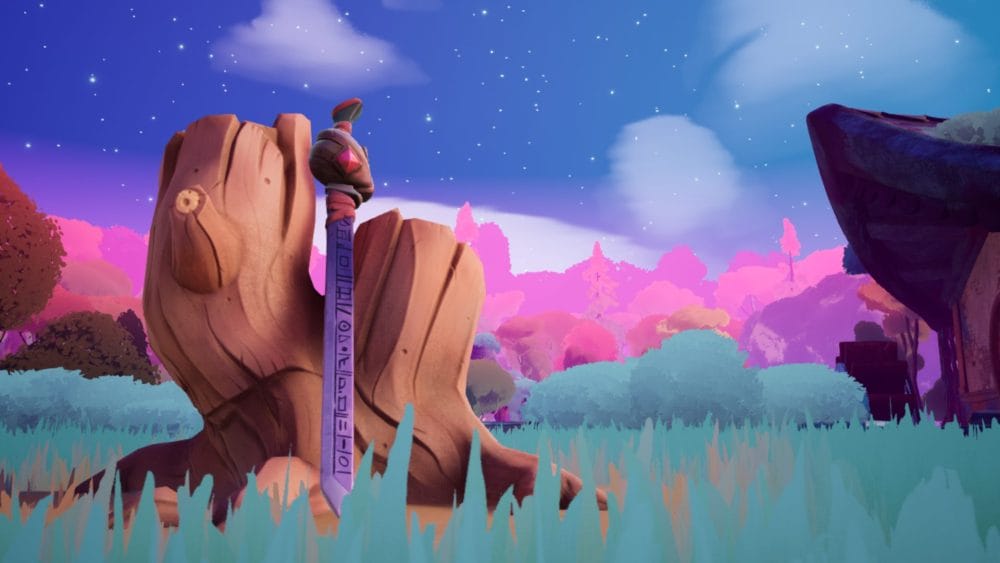
Wanderstop is a game about understanding that who you were does not have to define who you are now. It’s about rest-not as a reward, but as something necessary, something inevitable. It is a beautiful, heartfelt story of one person’s struggles to rediscover who they are, but handled in a caring and sincere way. I believe that any game that is able to make me feel and think about such topics and self reflect on my own experiences so deeply is something truly special, and I hope others had a similar experience. We could all do with some time to relax, to just be with ourselves and maybe rediscover or redfine who we are. The only question is whether Alta, and by extension the player, will allow themselves to embrace these lessons, without guilt.

Wanderstop was reviewed on PC is available on PC(Steam), Xbox Series, and PlayStation 5.
We would like to thank Annapurna Interactive for providing us with a review code for the game.

